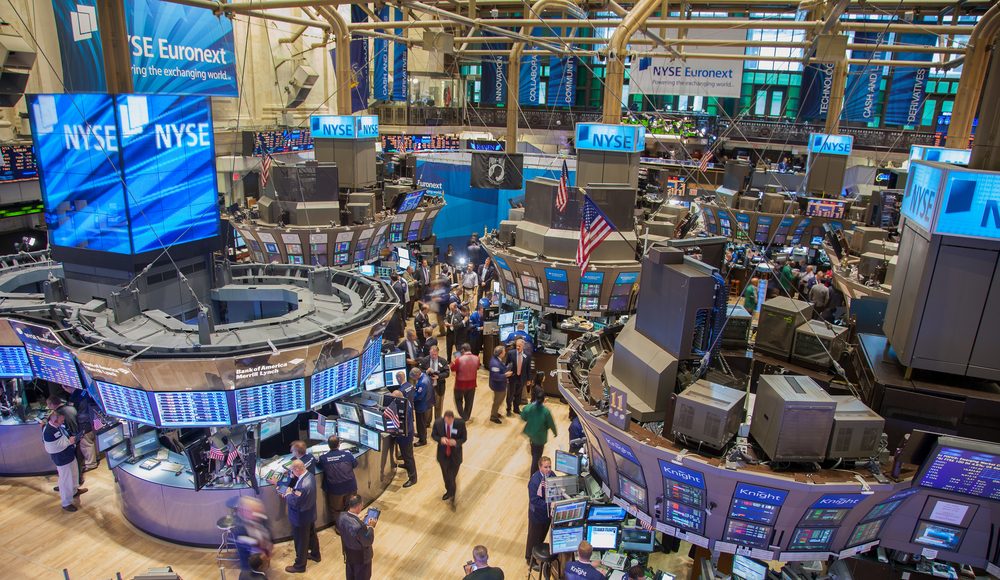September 20, 2025
Every successful investor knows a painful truth: knowing when to sell is often more critical than knowing what to buy.
While financial media overwhelmingly focuses on buying opportunities, our research consistently identifies companies facing significant headwinds that merit serious consideration for selling. These aren’t just stocks underperforming the market; they’re businesses confronting structural challenges, deteriorating fundamentals, or carrying valuations disconnected from financial reality.
What you won’t find here: reactionary calls based on short-term price movements or headline volatility. Each company on this list has been thoroughly analyzed across multiple metrics that historically precede substantial declines.
Smart investors understand that portfolio management requires both addition and subtraction. Sometimes the best investment decision is to redeploy capital away from troubling positions before problems fully materialize in the share price.
This week’s watchlist highlights stocks showing critical weaknesses that demand immediate attention:
Uber Technologies (UBER)
Uber faces an erosion of its competitive moat in the autonomous vehicle space following rival Lyft’s expanded partnership with Waymo, threatening the core investment thesis that has driven the stock up nearly 50% this year. The announcement that Waymo will launch robotaxi service in Nashville through Lyft’s platform represents a significant strategic shift, as riders will initially access autonomous vehicles through the Waymo app before eventually booking through Lyft’s platform in 2026. This dual-access model differs meaningfully from Uber’s existing Waymo partnerships in Atlanta and Austin, where autonomous rides are exclusively available through the Uber app.
The market’s 4.5% sell-off in Uber shares this week reflects investor recognition that autonomous vehicle partnerships may not provide the exclusive competitive advantages previously assumed. While Uber maintains existing collaborations with Waymo in other cities, the autonomous vehicle maker’s strategy of partnering with multiple ride-hailing platforms suggests these relationships are less exclusive than investors hoped. This development is particularly concerning given that much of Uber’s recent stock appreciation has been attributed to its positioning as the primary platform for autonomous driving companies.
At $94.57 with a $194 billion market capitalization, Uber trades at premium valuations that assume continued dominance in the emerging autonomous mobility market. Analysts note that Waymo’s strategy is to deploy its autonomous technology as broadly as possible across existing service providers, which inherently reduces the competitive advantages any single platform can maintain. While Uber’s diversified business model including Uber Eats provides some protection, the autonomous vehicle narrative has been central to the stock’s valuation premium. For investors who purchased shares based on Uber’s exclusive autonomous vehicle positioning, this week’s developments suggest reassessing the investment thesis may be prudent before competitive dynamics further deteriorate.
Rocket Lab (RKLB)
Rocket Lab demonstrates how timing dilution perfectly can trigger massive selling pressure even when business fundamentals remain strong. The aerospace company announced a $750 million at-the-market equity program this week immediately after shares hit an all-time high above $54, creating a textbook example of management cashing in at peak valuations. The stock plummeted 11.9% following the announcement as investors recognized the dilution risks inherent in new share issuance, despite the company’s operational success with 12 missions completed in 2025.
The fundamental challenge facing Rocket Lab is the disconnect between current valuation and cash consumption. Despite maintaining nearly $700 million in cash, the company burns approximately $200 million annually while developing its Neutron rocket and pursuing contracts including potential involvement in the Golden Dome missile defense program. At current burn rates, the cash runway provides roughly 3.5 years of operations, but the substantial development costs for Neutron and other space initiatives require continuous capital access that inevitably leads to shareholder dilution.
At $47.81 with a $23 billion market capitalization, Rocket Lab trades at extreme multiples relative to its $500 million annual revenue and persistent EBITDA losses approaching $200 million. The company’s 88.9% year-to-date gain has created a valuation that requires more faith than fundamentals, particularly given the expensive nature of rocket development and manufacturing. While the space economy presents substantial opportunities, Rocket Lab’s path to justifying current valuations depends on execution excellence across multiple complex technical programs. The recent equity program announcement signals management’s recognition that current share prices may not persist, making this an opportune exit point for investors who rode the spectacular 600%+ run-up over the past year.
Rivian Automotive (RIVN)
Rivian confronts the erosion of its most critical partnership as Amazon explores alternative electric delivery vehicles from General Motors, potentially undermining the strategic relationship that has anchored the company’s business model since 2019. Bloomberg reported this week that Amazon is evaluating GM’s BrightDrop electric vans alongside vehicles from Ford, Stellantis, and Mercedes, representing a clear shift from the exclusive focus on Rivian’s delivery solutions. This development is particularly troubling given that Amazon represents Rivian’s largest and most strategically important customer relationship.
The timing of Amazon’s supplier diversification coincides with Rivian’s persistent operational failures that make the company an unreliable partner despite years of development. Even with Amazon’s substantial business, Rivian lost $4.7 billion last year and analyst projections show continued losses extending into 2031, demonstrating fundamental unit economics that remain broken despite scale. The company’s second-quarter deliveries of just 10,661 vehicles fell 22.7% year-over-year, raising questions about manufacturing capabilities and market demand that Amazon likely considers when evaluating supply chain risks.
At $14.85 with a $17 billion market capitalization, Rivian trades on the promise of future profitability that appears increasingly distant as operational challenges persist. 24/7 Wall St. analysts project the stock could decline to $11.88 per share, representing 14.3% downside, as the company faces headwinds including tariff pressures, softening demand, and continued cash burn exceeding $300 million quarterly. While Amazon maintains its commitment to 100,000 electric delivery vehicles by 2030, the critical phrase shift to “100,000 electric delivery vehicles” rather than “100,000 Rivians” signals the partnership exclusivity that investors valued may be ending. For shareholders who believed Amazon’s commitment provided downside protection, the emerging supplier diversification strategy suggests immediate exit consideration before further partnership deterioration becomes apparent.








